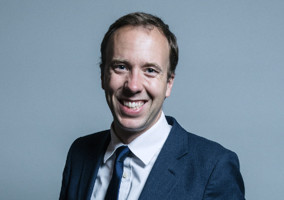Rob Wilson, the former charities minister, has launched a widespread attack on political bias in large charities, singling out Oxfam as “a front-group for extreme left-wing Corbynistas”.
Wilson, who was minister for civil society for three years until he lost his seat as Conservative MP for Reading East at the last general election, attacked large charities in his Telegraph column yesterday for being too pro-left and for “unfair criticism of the government”, and said charities needed to address this issue by hiring “more right-leaning people”.
He said the issue was exemplified by Oxfam’s controversial report that estimated that just eight men own as much wealth as the poorest 50 per cent of the planet.
“Oxfam, like a number of large international charities, has been so blinded by the political correctness of the chattering classes, it has disappeared up its own, morally righteous, posterior,” he wrote.
“It stands accused of being anti-capitalist, anti-wealth and anti-Conservative. Some have even gone so far as to suggest that it is now a front-group for extreme left-wing Corbynistas. It certainly gives every impression of being incapable of evidence-based rational argument.
“The leadership of the big charities must stop being so overtly pro-left. They must provide balance by hiring new right-leaning people and change their focus.”
Sector regarded with suspicion by government
He said charities struggled to do business with the current government because of their political focus.
“Some government ministers already regard the charity sector with suspicion because it largely employs senior people with a left-wing perspective on life and because of other unfair criticisms of the government,” he wrote. “It means there is regularly a tension between big charities and the Conservative Party.”
Wilson claimed that Oxfam, by saying that some people were rich while others were poor, was showing party political bias.
“Of most concern is why a charity such as Oxfam believes it can sail so close to the wind,” he wrote. “After all it’s not the first time it has done this. In 2014, it ran a social media campaign describing austerity in Britain as a 'perfect storm' forcing people into poverty forcing people into poverty.”
Government grants should 'dwindle'
Wilson suggested that charities and social enterprises did have "huge potential", but as service delivery organisations, because they would allow government to deliver “lower cost” services.
"It’s time to stop campaigning for more state hand-outs and instead become partners in a social reform programme," he said. "Only then will the charity sector make the most of its huge potential and the enormous goodwill of the public.
"Government should not be afraid of reinvigorating the third sector and re-energising its power to do good. As the stresses and strains on the public sector become more and more evident, charities are needed to deliver the better outcomes at the lower cost the country needs."
He advocated allowing grant funding to "dwindle further" and replacing it with contracts, because contracts allowed government to force charities to be more professional and responsive.
“It is charities, social enterprises and co-operatives that should be delivering many of our local public services, not fuelled by grants but contracts,” he wrote. “I don't advocate simply handing over money without the right checks and balances, but contracts do change behaviour in an organisation, making it more professional, responsive and focused.
“The government’s job must be to provide charities with the secure contract framework they need so that they are able to deliver.”
Oxfam responds
Oxfam's head of advocacy Katy Chakrabortty said: "Since 2014 Oxfam has published reports on global inequality which chart the growing gap between the extreme wealth of a small group at the top and the billions around the world who struggle to get by. Inequality matters to us because the evidence is clear that the huge gulf between the world’s haves and have nots is holding back efforts to end extreme poverty.
"Breaking down the barriers that are holding back the world’s poorest people is not about ideology – it’s common sense. Theresa May has said the economy needs to work for everyone, not just the privileged few. We’re calling for action to achieve precisely that."
Related articles











